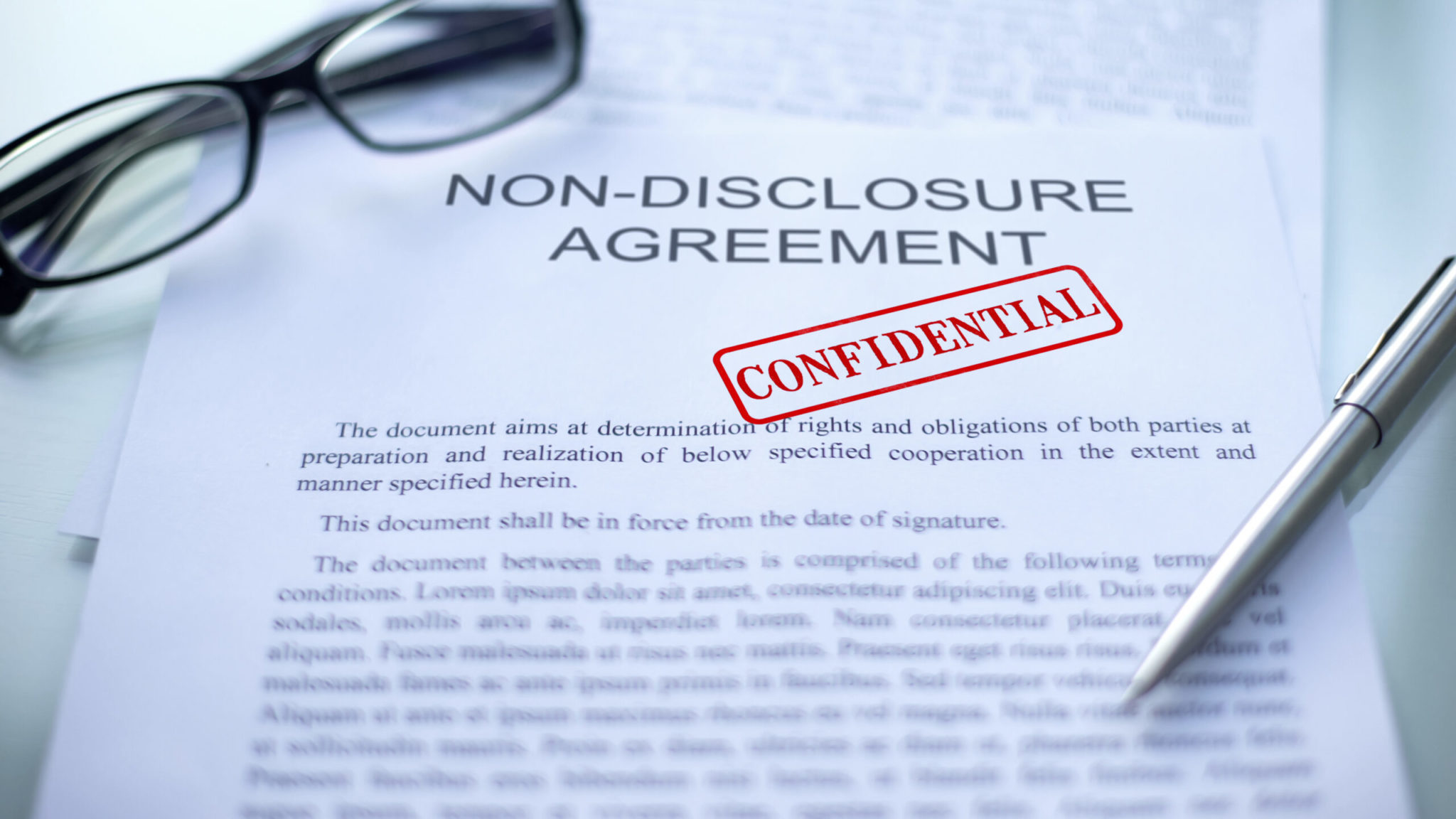
In business, we often come across information that is valuable and must be kept confidential. This could be anything from client lists and contact information to marketing strategies and product plans. If this information were to leak, it could be detrimental to the business. That’s where NDAs (non-disclosure agreements) and confidentiality agreements come in. In this blog post, we will explore what these agreements are, and why all businesses need one readily available.
What is an NDA and is it different to a Confidentiality Agreement?
An NDA or non-disclosure agreement is a legally binding contract between two parties, typically used when one party wants to share confidential information with the other party. The purpose of an NDA is to protect the confidentiality of the information disclosed and to prevent it from being used for any purpose other than what it was intended for.
A confidentiality agreement is similar to an NDA in that it is a legally binding contract between two parties and helps to protect confidential information. In business the two terms are often used interchangeably.
While there is not a hard distinction between the two agreements, there are some conventional differences. For example, a confidentiality agreement may be more narrowly focused on protecting certain trade secrets, while an NDA typically protects most confidential information. Additionally, a confidentiality agreement typically requires both parties to keep the information confidential, while an NDA may unilaterally require one party to keep the information confidential.
There are many situations in business where a Non-Disclosure Agreement (NDA) is necessary in order to protect confidential information, such as:
• discussing sensitive business information with potential investors or partners;
• when sharing confidential information with employees or contractors;
• when developing new products or services;
• when negotiating contracts for sale;
• when two companies are considering a merger or acquisition
An NDA is a legally binding agreement that requires the parties to keep certain information confidential. This can help prevent the misappropriation of trade secrets or other sensitive information. If you are ever in a situation where you need to share confidential information with another party, make sure to have a Non-Disclosure Agreement in place first. This will help ensure that your information remains protected and does not fall into the wrong hands.
Common clauses in an NDA
There are a few key clauses that should be included in every NDA, no matter what industry you’re in. These clauses will help protect your company’s confidential information and trade secrets:
• Definition of Confidential Information: This clause should clearly define what confidential information is and what is not considered confidential. This will help prevent any misunderstanding down the road.
• Obligations of the parties: The obligations of the parties should be clearly laid out. For example, exactly what types of activities are prohibitive and in what limited circumstances can the parties use confidential information?
• Duration of the Agreement: This clause will specify how long the agreement is valid for. Typically, NDAs are valid for 2-5 years, but this may vary depending on your needs.
• Enforcement: This clause outlines what will happen if there is a breach of the agreement. This typically includes financial compensation for any damages caused by the breach.
Limitations of NDAs
NDAs have limitations and may not be adequate to protect your business information in all situations. First, they only bind the parties who have signed them. If a third party obtains the confidential information via one of the contracting parties, they will not be bound by the NDA and may be able to use the information freely. Second, NDAs can be difficult to enforce, particularly if the recipient of the information is in a foreign jurisdiction or there is uncertainty about whether the information was already in the public domain. Third, even if one party breaches the agreement, it can be difficult to prove significant loss and damage and obtain injunctive relief from a court.
Given the above, consideration should always be given to limiting disclosures of information to the minimum possible, even when an NDA is in place.
Protect your secrets with a legally binding Non-Disclosure Agreement.
Written by

Daniel Dash, Senior Associate
Daniel is part of the commercial law team at NB Lawyers – lawyers for employers working with individuals and business owners on a range of matters including business sales, business structuring, commercial contracts, corporations law, litigation, franchise law, intellectual law and taxation.
Daniel Bio Page
[email protected]
(07) 3876 5111

